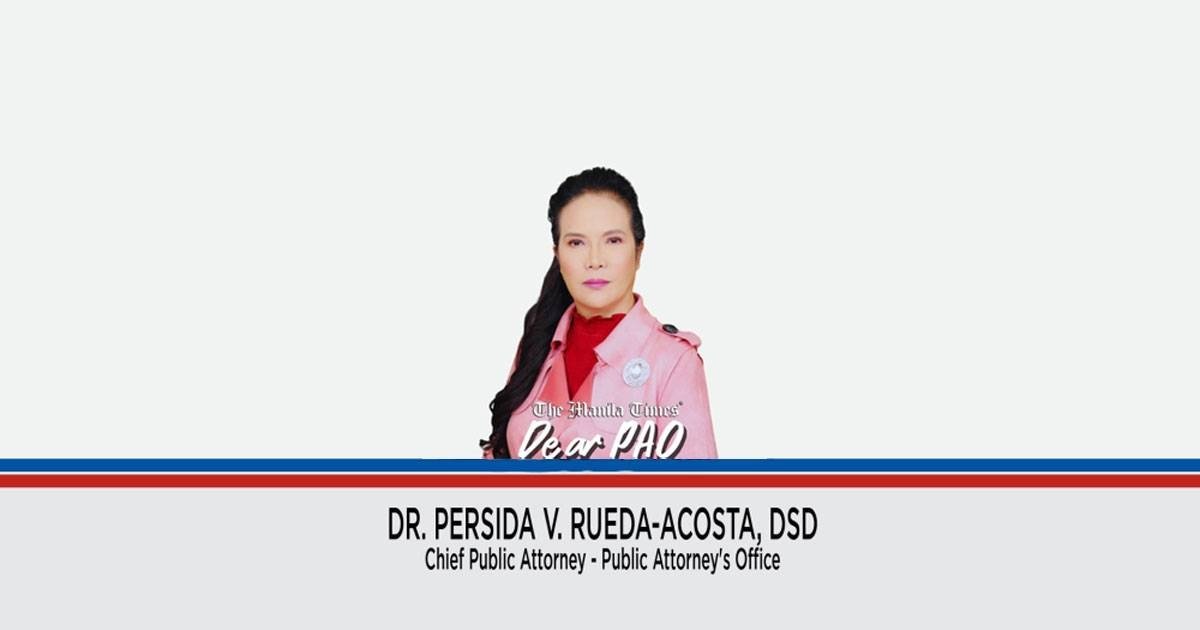Dear PAO,
My brother was shot by Mark. Luckily, he survived the attack. The only pieces of evidence we have against Mark are the CCTV footage from the crime scene and the paraffin test conducted by the police. The investigator informed me that the paraffin test yielded a negative result, and he seemed concerned when relaying this information, which makes me worry that it may clear Mark of any responsibility. My suspicion even grew when I heard Mark bragging about his innocence, claiming that the paraffin test result would prove it. Is the paraffin test vital in proving the guilt of Mark? Will the negative paraffin test lead to the dismissal of the criminal case?
Tonio
Dear Tonio,
In general, the guilt of the accused must be proven by proof beyond reasonable doubt. Pursuant to Section 2, Rule 133 of AM 19-08-15-SC2019 or the Amendments to the 1989 Revised Rules on Evidence:
“In a criminal case, the accused is entitled to an acquittal unless his or her guilt is shown beyond reasonable doubt. Proof beyond reasonable doubt does not mean such a degree of proof as, excluding possibility of error, produces absolute certainty. Moral certainty only is required, or that degree of proof which produces conviction in an unprejudiced mind.”
To establish criminal liability, either direct or circumstantial evidence is needed. The difference between the two was elaborated in the case of Bacerra v. People of the Philippines, GR 204544, July 3, 2017, where the Supreme Court, through Associate Justice Marvic M. V. F. Leonen, states:
“The difference between direct evidence and circumstantial evidence involves the relationship of the fact inferred to the facts that constitute the offense. Their difference does not relate to the probative value of the evidence.
“Direct evidence proves a challenged fact without drawing any inference. Circumstantial evidence, on the other hand, ‘indirectly proves a fact in issue, such that the factfinder must draw an inference or reason from circumstantial evidence.’
“‘The probative value of direct evidence is generally neither greater than nor superior to circumstantial evidence. The Rules of Court do not distinguish between ‘direct evidence of fact and evidence of circumstances from which the existence of a fact may be inferred.’ The same quantum of evidence is still required. Courts must be convinced that the accused is guilty beyond reasonable doubt.”
Thus, the evidence to be presented by the prosecution must convince the court that the accused is guilty beyond reasonable doubt. The paraffin test alone would not prove the accusation against Mark. On this score, the pronouncement of the Supreme Court in People of the Philippines vs. Cajumocan, citing People v. Abriol et al., GR 155023, May 28, 2004, under the ponencia of Associate Justice Consuelo Ynares-Santiago, is enlightening:
“Paraffin tests, in general, have been rendered inconclusive by this Court. Scientific experts concur in the view that the paraffin test has proved extremely unreliable in use. It can only establish the presence or absence of nitrates or nitrites on the hand; still, the test alone cannot determine whether the source of the nitrates or nitrites was the discharge of a firearm. The presence of nitrates should be taken only as an indication of a possibility or even of a probability but not of infallibility that a person has fired a gun since nitrates are also admittedly found in substances other than gunpowder. xxx
“In People v. Abriol et al., we reiterated the rule on the admissibility of this kind of evidence:
“A paraffin test could establish the presence or absence of nitrates on the hand. However, it cannot establish that the source of the nitrate was the discharge of firearms. Nitrates are also found in substances other than gunpowder. A person who tests positive may have handled one or more substances with the same positive reaction for nitrates, such as explosives, fireworks, fertilizers, pharmaceuticals, tobacco, and leguminous plants. Hence, the presence of nitrates should only be taken as an indication of a possibility that a person has fired a gun. However, it must be borne in mind that appellants were not convicted on the sole basis of the paraffin test
Paraffin tests, it must be emphasized, merely corroborate direct evidence that may be presented by the prosecution.”
Applying this to your situation, the paraffin test is unreliable on its own, and Mark may not be convicted or acquitted based solely on that. Such test would only establish the presence or absence of nitrate on the hand of Mark. The absence of nitrate would not mean that Mark did not shoot your brother, while its presence would not also mean that he was the shooter. If there are other evidence to prove that Mark was the culprit, such as the CCTV footage you mentioned or perhaps eyewitnesses to the crime, then Mark may still be convicted for shooting your brother.
We hope that we were able to answer your queries. This advice is based solely on the facts you have narrated and our appreciation of the same. Our opinion may vary when other facts are changed or elaborated.
Editor’s note: Dear PAO is a daily column of the Public Attorney’s Office. Questions for Chief Acosta may be sent to [email protected]




